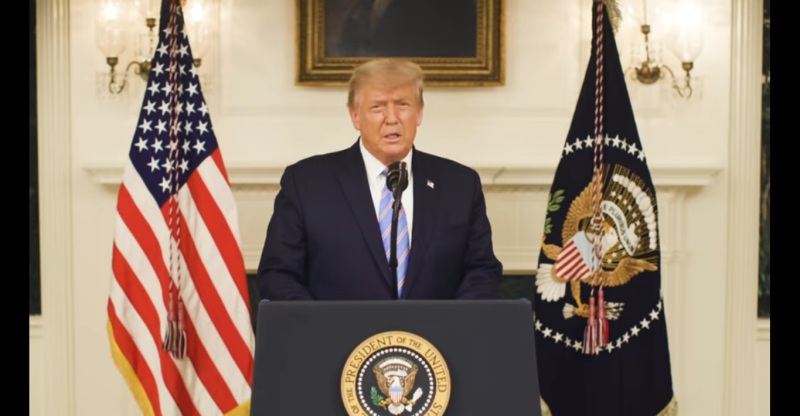
The U.S. House of Representatives have voted to impeach President Donald Trump following the riot incident that happened in Capitol Hill.
LifeSite News reported that Trump makes another history as the first President to be tried for impeachment twice in his term.
As of this writing, 222 Democrat representatives have already voted to impeach Trump as President of the United States and 10 more Republicans have joined putting the number to a total of 232 in favor of the impeachment.
Among the Republicans who favored the impeachment are Rep. John Katko of New York, Rep. Dan Newhouse and Rep. Jaime Herrera Beutler of Washington, Rep. Fred Upton and Rep. Peter Meijer of Michigan, Rep. David Valadao of California, Rep. Adam Kinzinger of Illinois, Rep. Liz Cheney of Wyoming, Rep. Anthony Gonzalez of Ohio and Rep. Tom Rice of South Carolina.
According to the Democrat leadership of the House, the President is accused of "incitement of insurrection" which claims that Trump played a significant role in the entrance of protesters in the U.S. Capitol building last Wednesday which ended badly after a deadly riot that killed five people.
Nancy Pelosi, Democrat House Speaker, took today's floor on the debate of the impeachment and asserted that "the President of the United States incited this insurrection, this armed rebellion against our common country" saying that he must go seeing that Trump is clearly a "present danger to the nation" that all Americans love.
The impeachment charges were not criminal though which seems to stem from the riot act that happened at the Capitol Hill on Jan. 6. The charges brought against President Trump were political citing his repeated issue of "false statements asserting that the Presidential election results were fraudulent and should not be accepted." The President was also charged of willfully making statements that encouraged the crowd and "foreseeably resulted in lawless action at the Capitol."
The charge continued that the President endangered the security of the state and threatened the integrity of the system.
"President Trump gravely endangered the security of the United States and its institutions of government, threatened the integrity of the democratic system, interfered with the peaceful transition of power, and imperiled a coequal branch of government."
Interestingly, a Democrat law professor, Jonathan Turley, said the President "never" called for riots or violence at all, an earlier report from Christianity Daily said. Instead, Trump called on his supporters to "peacefully" let their voices be heard.
"While I was highly critical of the President's remarks, he never actually called for violence or a riot. Indeed, he expressly told his followers 'to peacefully and patriotically make your voices heard.' Such marches are common in both federal and state capitols," Turley tweeted last Saturday.
While I was highly critical of the President's remarks, he never actually called for violence or a riot. Indeed, he expressly told his followers "to peacefully and patriotically make your voices heard." Such marches are common in both federal and state capitols.
"” Jonathan Turley (@JonathanTurley) January 9, 2021
Also, another report from Christianity Daily, citing One America News Network, noted that Democrats seem to rush Trump's impeachment out of their "fear" - or their "vindictiveness."
"Vindictiveness in that Democrats and establishment Republicans want Trump and his legacy to leave the White House bruised and bloodied. Fear in that they believe President Trump may do something drastic between now and inauguration day to stay in power," the report said, quoting OANN's Chanel Rion.
With the impeachment charges in place, the U.S. Senate will now vote with its 100 senators, 50 each from both Republican and Democratic group to decide whether they will convict or acquit Trump of the charges.
Majority Leader Mitch McConnell of Kentucky, while a Republican, has been reported to give his favor to go through with the impeachment. However, McConnell stated earlier that the Senate will not reconvene until the day before Joe Biden's inauguration which will fall on Jan. 19.
This only means that until then, the impeachment trial will have to wait until the Senate convenes again. If the impeachment will go through after Biden's inauguration on the 20th, Trump is not likely to be able to run again for presidency in the next 2024 elections.









































